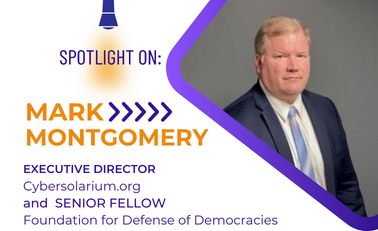
I got into cyber through my final job in the Navy and my first job in the Senate.
My last job in the Navy was as Director of Operations, or J-3, at U.S. Indo-Pacific Command. In that role I led the day-to-day operations and operational war planning across all services in a very large area of responsibility. Both offensive and defensive cyber activities were a critical part of these operations. I had to work very closely with the J-6 and J-2 in both executing cyber network defense operations and utilizing offensive cyber capabilities in planning for both China and Korea contingencies. In that respect I quickly learned the value of cyber but also the challenge in getting the most out of cyber capabilities given restraints placed on our activities both by the intelligence community who did not want to risk their accesses being compromised, and by warfighters who preferred kinetic-only solutions.
In the Senate I was the SASC Policy Director and following the departure of our Cyber Professional Staff Member I inherited his responsibilities. This gave me a crash course introduction to the challenges around cyber legislation. We were able to get some important provisions through that year including the designation of cyber surveillance and reconnaissance as a traditional military capability, which opened the door to more aggressive offensive cyber policy at military commands; and we got the Cyberspace Solarium Commission approved. A busy two months.
The work experience that helped me transition to a career in cyber policy was working for Sen John McCain and Chris Brose on the Senate Armed Services Committee. The SASC staff taught me how to analyze policy issues, break down the challenge and write legislation to address the issue.
The biggest influencers in my life were one of my first Commanding Officers, Sam Locklear, who taught me to maintain passion but. Lose the emotion when working a challenge; and one of my first Commodores, Jim Stavridis whose commitment to professional writing and study stays with me today.
My advice to VETS in planning a successful transition to a career in cyber is to make sure you have your technical skills well documented before separation or retirement. Take the time to get professional civilian certifications. Take advantage of the programs at VA, Labor and DoD for transitioning service members, especially cyberskills2work.org efforts. And keep your clearance as current as possible. If you do all this, you will be a highly sought after (and well compensated) cyber employee.”
A favorite place of mine is on the bridge wing of a destroyer on a well-lit night.